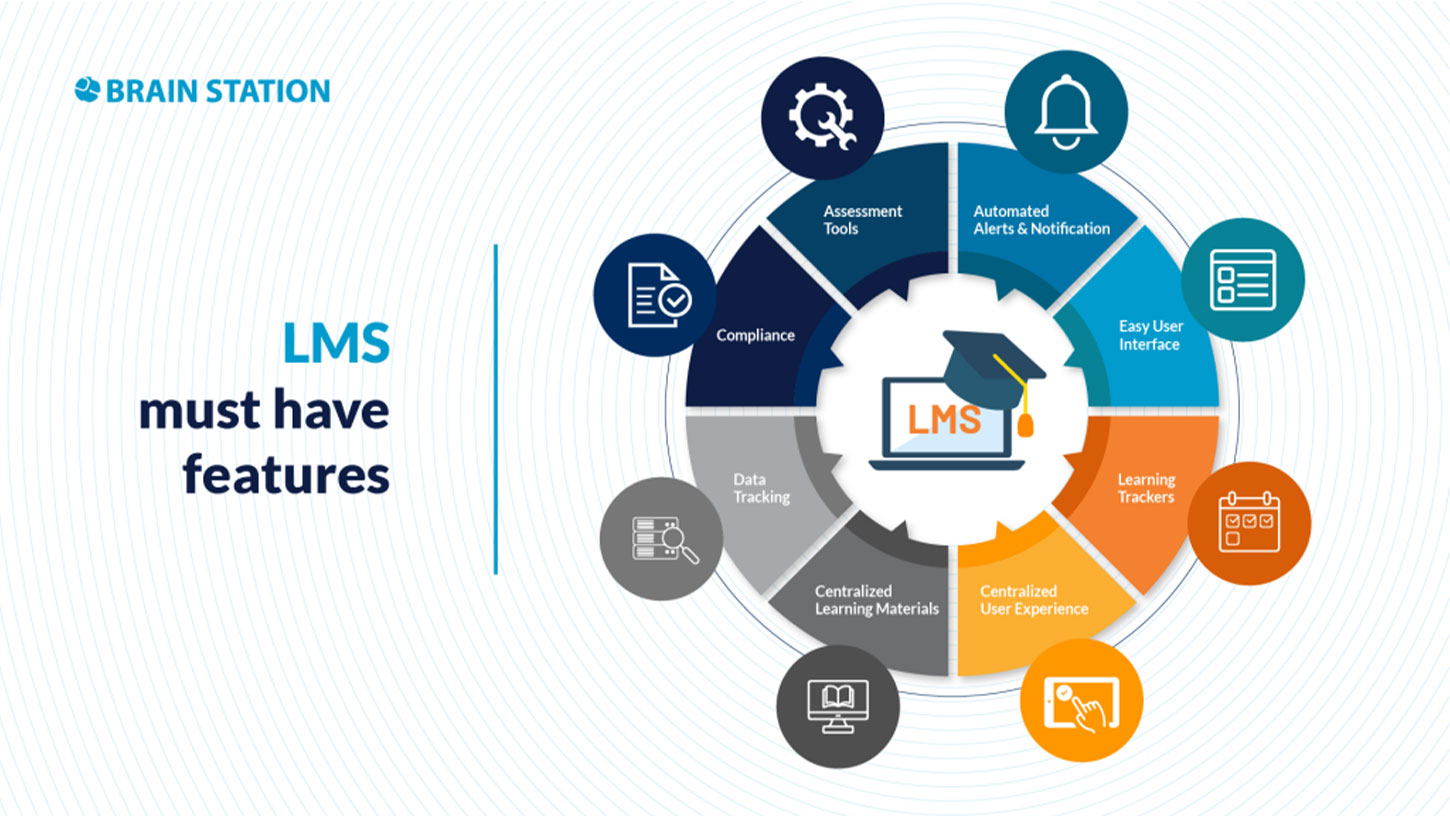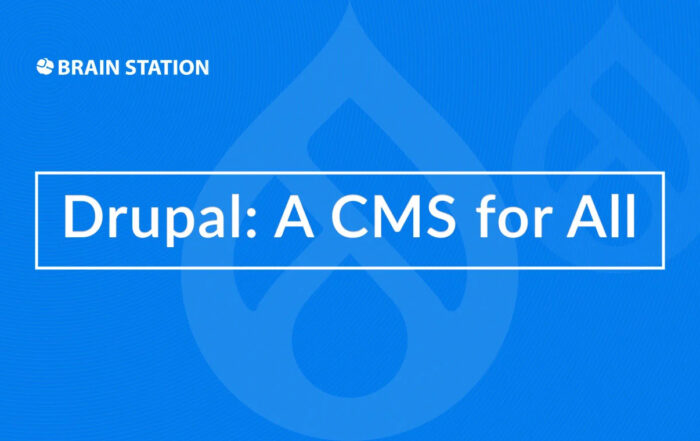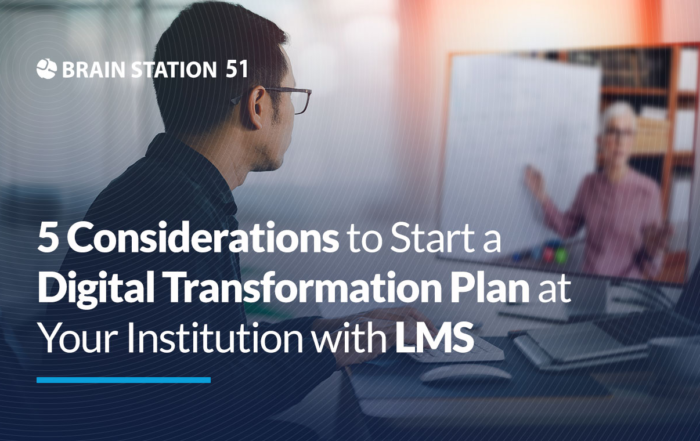Reading time - 12.2 min.
How to Choose The Best LMS for Healthcare Training
Reading time - 12.2 min.
How to Choose The Best LMS for Healthcare Training
We are here to help your healthcare organization implement an eLearning system as effectively as possible by understanding eLearning trends in healthcare training and knowing what to look for in an LMS.
A learning management system is a significant tool for healthcare training since it relieves the stress of teaching a large number of practitioners. Even more, we all know that Healthcare professionals need to constantly upgrade skills and adapt to new protocols and medical procedures. In fact, according to The LMS for Healthcare market report, the market is expected to reach $2.2 billion by 2026, growing at a CAGR of 24.7% from 2021 to 2026. So, no doubt many healthcare organizations now rely on a learning management system (LMS) to ensure employee online training is up to date & engaging. Most surprisingly an LMS can manage a big number of users and provides features including a diverse set of courses, quick setup, and flexible access for employees that work odd hours. Furthermore, when compared to traditional in-person training, the correct LMS can save you a lot of money as well. In this era of the new normal from the year 2020, the importance of healthcare training became clearer than ever before. As health and safety are the top priority of every business, including the government, this tendency is not far behind in the healthcare industry. Telehealth training, as well as numerous COVID-19-related training courses and programs, have become crucial for healthcare professionals in addition to traditional healthcare & medical training. So, the usage of learning management systems for medical science has also increased. So, nowadays many healthcare companies are still looking for the finest LMS platform, for the healthcare training their workforce needs.
Hence, this blog will help you by understanding eLearning trends in healthcare training and knowing what to look for in an LMS, healthcare organizations can implement an eLearning system that will produce the results they want.
So, before choosing the Best LMS for your Healthcare Training purposes, first, you must need to know –
Why do Healthcare Organizations Need an LMS?
LMS solutions for healthcare enable healthcare businesses to give relevant and cost-effective training to their personnel in order to ensure that they remain qualified and in compliance with current healthcare standards and regulations, as well as to continuously enhance patient care.
In today’s post-COVID world, no healthcare organization can afford to be without a learning management system. A learning management system (LMS primary) goal is to help healthcare organizations improve patient care by keeping personnel up to date on medical best practices and equipping them with relevant skills.
So, let’s go over the major reason why an LMS is required for healthcare training purposes in order to remain successful business outcome in this competitive market-
- Streamlines thousands of hospital staff and medical professionals
- Improve education quality and accessibility of resources
- Helps to facilitates the learners to study anywhere at any time.
- LMS accommodates and manages practically various healthcare courses
- It responds quickly to new training trends & demands for busy staff
- Helps organizations stay compliant with shifting regulatory requirements.
- Allows employees to share information online with one another easily.
- Also provides tools to help assess its own effectiveness
- Gives staff 24/7 access to training materials.
- Decreases time to productivity (eLearning can reduce overall training time by 40 to 60 percent).
Furthermore, LMS has the potential to save a lot of energy, time, and money for your organization as it reduces the need for in-person training. With an LMS employees do not have to take time away from their work at a particular time, so your organization can train several employees at the same time. LMS have far more advantages than those listed.
Things to Consider When Choosing an LMS for Healthcare Training
It is important to note that “having access to an LMS does not necessarily imply that learning has occurred effectively.” An LMS must meet key criteria into consideration to positively impact patient outcomes before choosing a perfect LMS for health care training. But, how do you choose among thousands of options available in the market?

A well-implemented healthcare learning management system (LMS) will help a hospital better organize training courses, track learner progress, and improve the learning experience. There are many other factors to consider when selecting an LMS for healthcare training.
So, if you want to choose an eLearning system, healthcare companies who have not yet implemented eLearning via LMS should consider the following, and here are some pointers to get you started:
Does your LMS align with current eLearning trends in healthcare training?
Before picking on the right LMS for your healthcare organization, you should first examine current trends & knowing the most recent eLearning trends in healthcare training will assist your businesses to select a perfect learning management system (LMS) with the capabilities required to keep compliant with ever-changing laws.
Hence, healthcare workers require quick training to keep up with the additional services and treatments that COVID-19 patients require. So, an LMS should enable healthcare organizations to quickly disseminate remote training that can be accessed on any personal device from anywhere in the world at any time with a simple user interface.
Is your learning management system (LMS) capable of delivering effective healthcare onboarding and training?
Workers in the medical industry are incredibly busy and sometimes impossible to get a group of them together in the same room. In fact, No one knows the struggle of long hours and back-to-back shifts better than healthcare workers. On the other hand, the need to update and expand knowledge of complicated medical terminologies is continually growing, so effective healthcare must have a well-functioning LMS platform that can help to manage the onboarding of new employees or doctors, foster talent development, and provide soft skills training for nurses, pharmaceuticals, physicians, and others who deal with patients, as well as must have the ability to provide training on proficient in the use of new equipment, managing chronic conditions, and preventative care on a daily basis.
As a result of these efficient onboarding LMS training processes, new workers will be introduced to the healthcare organization critical policies and norms will be communicated. In fact having all this information in one place facilitates a smooth transition and makes employees feel like valuable, effective team members from the day one.
So, choosing the correct LMS for a healthcare organization helps trainers meet the complex needs of healthcare professionals while also ensure that employees and patients are satisfied with the care provided.
Does your LMS have ability to train patients as well?
A successful healthcare LMS educates both patients and employees. For example, A patient may be required to attend an online diabetes management course or a post-surgery care course. A healthcare LMS can create courses like this using LMS content production tools, allowing patients to care for themselves. These courses can also be purchased from a third-party provider by healthcare organizations. Another advantage of a learning management system is that it allows patients to access their medical records online.
How can you remain Compliance though the LMS?
The healthcare industry faces a large number of requirements for maintaining and managing compliance with regulatory requirements. Before selecting an LMS for the healthcare industry, it is necessary to comply with numerous laws that ensure quality care for patients & updated compliance training, As we all know failure to follow certain rules, laws, and regulations that ay concern your company lead to severe penalties as well as may ruin the company reputation.
Even more as we all know that healthcare regulations and standards are constantly changing. So, healthcare LMS must be keep up-to-date by tracking the compliance of your employees within your learning platform. Develop recurring certifications to encourage employees to freshen knowledge or skills.
In fact without an LMS, administering and tracking compliance training can be overwhelming. The best LMS for healthcare facilities will effectively manage compliance training effectively allowing your team to focus less on bureaucratic needs and more on delivering quality care.
You’re wasting money if your healthcare firm still manages compliance training and certifications manually. You’re also wasting time that could be better spent organizing and planning training programs to assist your employees grow more quickly. So no doubt anymore, that an LMS is the best alternative for your healthcare company’s compliance management.
Does your LMS offer a robust reporting & analytics feature with certification?
The training requirements for medical facilities are very strict. Healthcare organizations are often legally required to keep current and historical records of employee training. LMS reporting features make it easier for administrators to audit training and provide records of it when needed.
A good healthcare LMS should have reporting feature that track learning progress in each training session, provide certifications, offer real-time audits, alerts of training and suggest up-and-coming courses for skills shortages based on evaluating data sets from other systems using Artificial Intelligence (AI) predictive analytics, that staff have yet to complete to prove the accuracy of the perfect LMS. If your staff base is falling short in any way concerning training, LMS reports should highlight the problem early so you can correct issues quickly. More importantly, an LMS should provide refined data on provider performance and clinical readiness to help leaders identify areas of improvement, mitigate gaps, and implement new training or initiatives that improve patient care.
Security & Privacy of your LMS?
In healthcare, data security is one of higher importance. Having an eLearning partner that understands the unique challenges facing the healthcare industry regarding maintaining Security & Privacy. Companies in the healthcare industry need a secure platform to ensure the confidentiality of patient information, protect data and training records while successfully supporting healthcare compliance and training because violations can be expensive to manage. For example: Employees may not realize that they are at risk of violating patients or even employee information when they use mobile devices, texting, or social media to communicate information. A data leak can damage the reputation of both doctors and their patients.
So, an updated, strong secured training platform in LMS is must have complied with the region-based Healthcare security & privacy act. Such as -Most non-EU, US & Asia pacific region countries have different laws for information security and privacy in healthcare that are close to the HIPAA, GDPR & GxP.
That’s why in your healthcare LMS Security & Privacy regulations must be able to-
- Ensure the security of cross-border data transmissions.
- Allow users access to records.
- Notify users of any violations.
- Delete information upon request.
- If a device is lost, provide automatic data restoration.
These are the key feature of an LMS to address a changing work environment of a healthcare organization in order to avoid expensive violations.
Does your LMS Pairing Training with Online Technologies?
Technology is escalating our need for more responsive, adaptive training, it also provides practical solutions for making that training more accessible for learners. “Technology is not only transforming how we deliver education and training but is expanding our capacity to respond to the needs for higher education and training in a broader sense in many healthcare organizations. Integrating AR and VR technologies in your LMS let you create learning experiences that stand out from the crowd and trigger higher recall and comprehension rates. For example – Healthcare LMS’s that offer medical education and training in human anatomy require in-depth learning. The students can study, practice surgeries, and receive training in human anatomy in a 3D real view & fully simulated reality with virtual patients. Plus, gamified elements make the learning experience more memorable.
In addition, virtual reality does not require supervision, provides consistent instruction, and can cut simulation training costs by up to 50% by providing accessible but standardized and high-quality instruction.
So, does your LMS have integrated latest technological support for healthcare and medical education learning to remains on quality education that improves patient care?
For every organization while looking to adopt an LMS platform, there are many factors that have to be taken into your LMS account such as -combability, Mobile-friendliness, LMS future need, custom features, customer support, and reliability of an LMS to assist companies in identifying the points that shape their criteria and determining how an LMS platform can serve their cause.
Read the full blog to know more about LMS: Crucial factor of choosing the right LMS for your organization. This blog also can help to guide you for how to choose the LMS for your healthcare training.
Questions to Ask LMS Vendors Before Choosing an eLearning System for Healthcare Training-
Depending on your healthcare organization’s needs, you may want to look for all of the features above in an eLearning system for healthcare training. Alternatively, you could tailor your list to a few vital LMS capabilities.
So before chatting with a vendor via phone, web conference, or email, compile a list of questions to ask. Here are a few to get you started:
- “Can healthcare organizations use this LMS to deliver remote training, keep compliant with changing requirements, and disseminate training quickly as needed?”
- “Can this LMS manage compliance training for a huge volume of people?”
- “Does this system have tracking and reporting features that enable training auditing?”
- What level of customer service do your LMS offer?
- How robust is your LMS’s reporting feature?
- Can your LMS software provide training to patients as well as staff?
If you get yes answers to all of the questions on your list, you may have found the perfect LMS for your healthcare institution.
Conclusion
The eLearning-23 is a flat-fee LMS that checks all of these boxes and will facilitate any healthcare training need your organization might come across. It provides the best white-label platform with security, scalability, and flexibility to create and deliver online training programs to meet the needs of any training company or organizations. So before taking a final decision on LMS for your healthcare training, you must ensure that, Does Your Healthcare LMS Cover All Your Needs with the tips above mentioned?
If you are not totally satisfied with the results your current LMS for healthcare training is delivering, it may be time to try something new. eLearning23 LMS offers:
- Robust reporting
- Provides dedicated 24/7 hours customer support teams
- Promotes compliance
- Organizes certifications
- Provide flexible customizable LMS with numerous options.
- Maintains records of training
- Trains patients as well as staff
Get updates about Brain Station
We will process the personal data you have supplied in accordance with our privacy policy.
Testing in AEM: A Guide to Adobe Experience Manager Quality Assurance
We have served a pharmaceutical and clinical-stage biotechnology company, established in Europe, specializing in the discovery and development of small molecule medicines with novel modes of action.
Drupal: A CMS for All
We have served a pharmaceutical and clinical-stage biotechnology company, established in Europe, specializing in the discovery and development of small molecule medicines with novel modes of action.
5 Considerations to Start a Digital Transformation Plan at Your Institution with LMS
We have served a pharmaceutical and clinical-stage biotechnology company, established in Europe, specializing in the discovery and development of small molecule medicines with novel modes of action.



